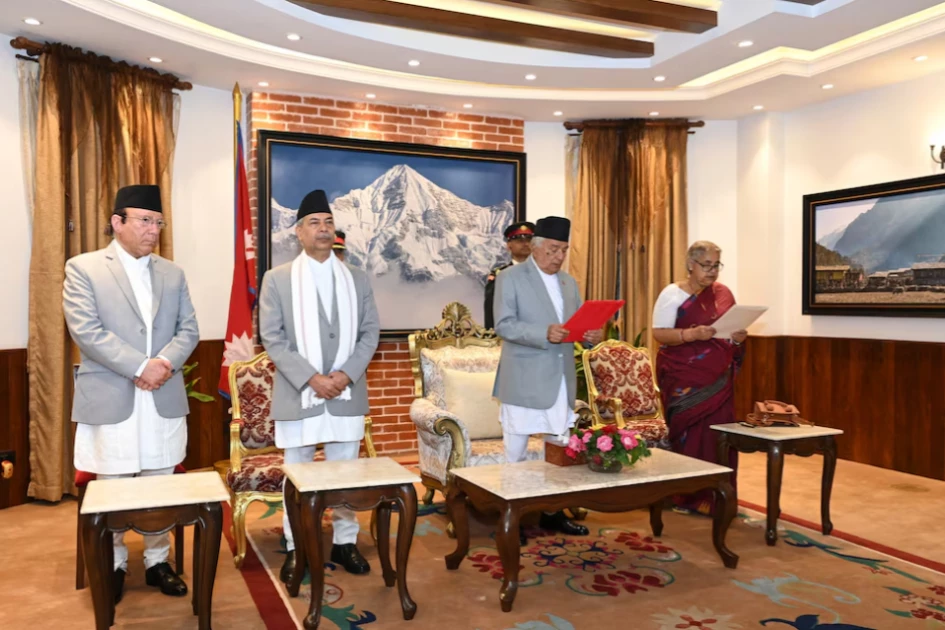Nepal sets March elections after naming interim prime minister

Nepal’s President Ramchandra Paudel administers the oath of office to Sushila Karki, a former Chief Justice, as Nepal’s interim prime minister during a swearing-in ceremony, following violent anti-graft protests, at the president's office in Kathmandu, Nepal, September 12, 2025. Nepal's President Office/Handout via REUTERS

Audio By Vocalize
Nepal's President Ramchandra Paudel has dissolved parliament
and called for fresh elections on March 5 following a week of deadly violence
that culminated in the appointment of the country's first
woman prime minister.
The statement from Paudel's office late on Friday came just
hours after he announced former Chief Justice Sushila Karki would lead the
country on an interim basis following the deadly "Gen Z"-led
anti-graft protests that forced former Prime Minister K.P. Sharma Oli to
resign.
The Reuters Daily Briefing newsletter provides all the news
you need to start your day. Sign up here.
According to the statement, the president has
"dissolved the House of Representatives" and fixed March 5 next year
for the elections.
Karki was appointed after two days of intense negotiations
between Paudel, army chief Ashok Raj Sigdel and the protest leaders behind
Nepal's worst
upheaval in years, in which at least 51 people were killed and more
than 1,300 injured.
Nepal's southern neighbour, India, said it hoped that the
developments would help foster peace and stability.
"Heartfelt congratulations to the Honorable Sushila
Karki Ji on assuming the office of Prime Minister of Nepal's interim
government. India is fully committed to the peace, progress, and prosperity of
Nepal's brothers and sisters," Indian Prime Minister Narendra Modi said in
a post on X.
The country-wide protests were sparked by a social
media ban that has since been rolled back. The violence subsided only
after Oli resigned on Tuesday.
Nepal has grappled with political and economic instability
since the abolition of its monarchy in 2008, while a lack of jobs has driven
millions of young people to seek work in other countries like the Middle East,
South Korea and Malaysia.
By Saturday, normality was returning in the country of 30
million people tucked between China and India, with most parts of the capital
Kathmandu seeing shops reopening and vehicles returning to the streets after
some prohibitory orders in force since Tuesday were suspended.
Relatives of the deceased gathered outside the Prime
Minister's official residence in Kathmandu, demanding martyr status for those
killed, which confers recognition that they died in the service of their
country, and compensation.
Some refused to take the bodies of their relatives from the
morgue until their demands were met.
"My brother should be declared a martyr as he died for
the country, and the government should give compensation to my parents,"
said Sumitra Mahat, sister of 21-year-old Umesh Mahat, who was killed during
the protest.
She along with other family members, stood in front of the
Prime Minister's official residence with a banner displaying pictures of some
of those that died. Most said their relatives had been shot.


Leave a Comment